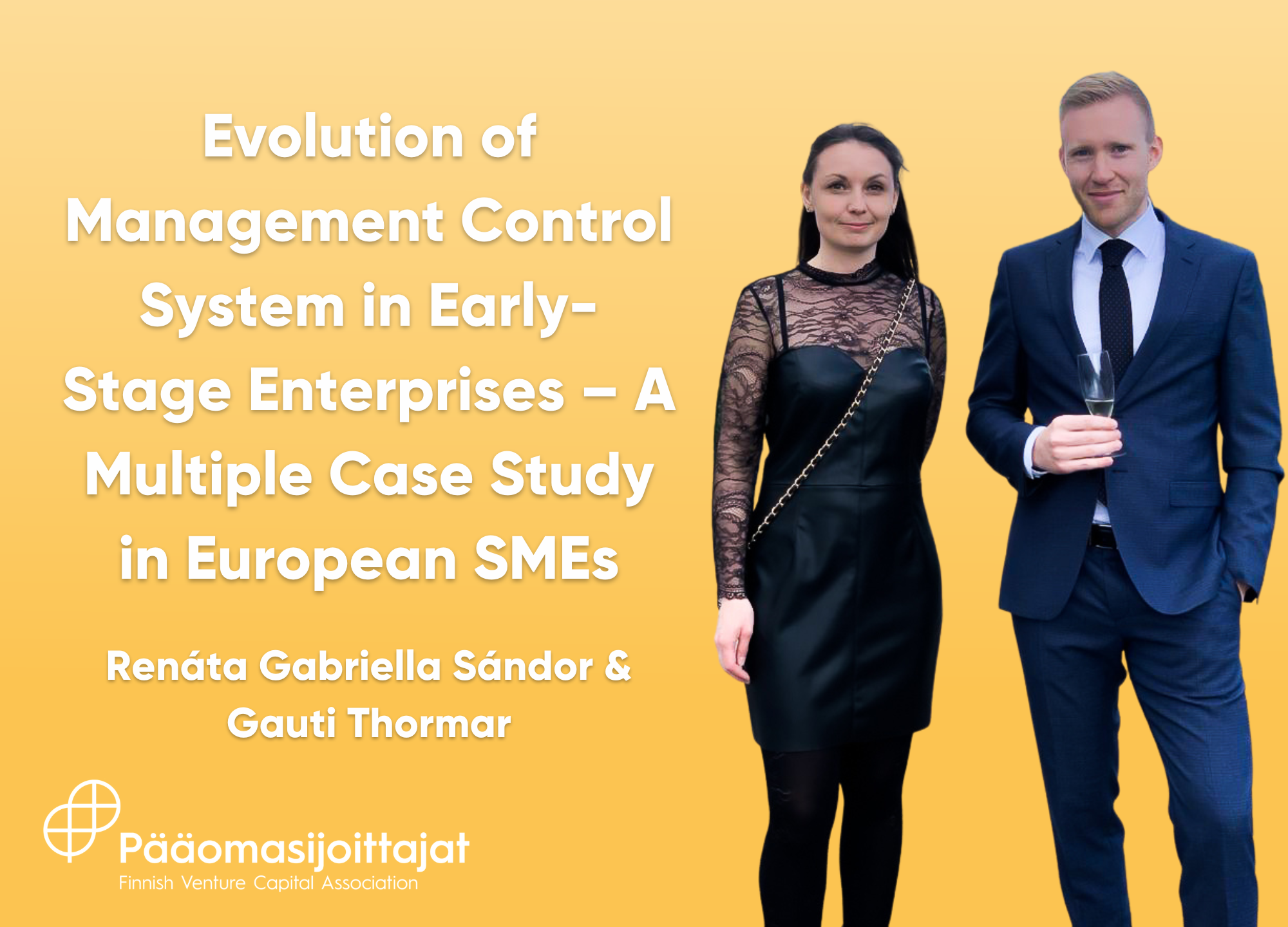Read next


With the sudden emergence of company giants, the market focus shifts from well-established companies to early-stage companies. This shift is accompanied by the rapidly growing venture capital industry and the appearance of non-listed firm databases. Today’s start-up company may be the next giant in less than a couple of decades; a similar growth rate used to be achieved in the span of 80 years. As SMEs (small and middle-sized enterprises) create more than 50% of the economic value in Europe, it is essential to understand how company growth in SMEs is achieved.
Research indicates that implementing MCS assists SMEs in managing a dynamic environment and contributes to company growth. MCS can be understood as a systematic approach to overcome the limitations of informal control. MCS shall facilitate company growth by influencing employees to act in accordance with organizational objectives and by preventing detrimental organizational decisions. This can be achieved by improving communication channels and information processing within the enterprise. Low structural control, which is characteristic of early-stage companies, is inefficient beyond a certain size. When MCS is set up properly, companies can overcome the limitations of informal control and establish the essential pillars for growth. Research also confirms that investor presence is positively associated with MCS adoption. Building on these thoughts, the research question of the study behind this blog is formulated to explore how investor presence affects MCS development in SMEs.
Data and methodology
In order to investigate the research question, four European SMEs were interviewed. Companies with 50-100 employees were targeted to catch a moment when the need to supplement existing informal control with formal, more systematic elements may arise. As this moment has to do with the complexity of communicational and informational channels within the organizations, employee number criteria is a relevant factor in MCS research. Further, companies with an existing or past investor (VC, PE) presence were considered.
The design method of interview questions is unique in the sense that they were shaped to align with the fabric of MCS framework literature, calibrating the planning, cybernetic-, administrative-, and cultural control of Malmi & Brown (2008) with the results-, action-, personnel-, and cultural control techniques examples from Haustein et al., (2014).
Findings – Non-financial measures are excluded from VC and SME relations
The findings indicate that VC presence affects the administrative control of portfolio companies via the Term Sheet. The Term Sheet is an agreement between the parties that provides a basis for VC influence on organization design, governance, and procedures and policies. The degree of external control depends on the share ratio acquired by the VC. The share ratio defines voting rights, which affect the negotiating power of the VC. This power potentially reaches beyond administrative control, affecting even operational decisions when the investee’s financial performance lags behind.
Additionally, the extent of VC involvement in strategic planning may be influenced by factors such as entrepreneurial experience and company sales.
Based on the data collected on cybernetic- and cultural control, the case study companies have implemented MCS elements, despite the lack of resources that often characterize SMEs. Cybernetic control consists of financial measures (such as profit & loss statements and sales reports) and non-financial measures (such as market share, customer- and employee satisfaction, and OKR). Findings show that despite the fact that non-financial measures enable more informed strategic decisions, VCs haven’t taken an interest in assessing these; in fact, these measures were mostly excluded from the board reports.
Conflicting interests ought to be addressed by redirecting focus to company growth
As final remarks, with today’s technological advancement, company growth is no longer a long-term strategic goal that creates conflicting interests between the parties as per the Agency Theory. Investors and investees may resolve conflicting interests by aiming for company growth as a common goal. In order to understand growth, financial information coupled with MCS complexity may be assessed. MCS complexity is understood as a multidimensional measure that systematically evaluates business complexity. From the investor side, assessment of MCS complexity could reduce information uncertainty, contributing to more informed investment decisions and providing a competitive edge in evaluating investments. From the investee side, increased investor interest in MCS could contribute to guided company growth.
References:
Hausten, E., Luther, R., & Schuster, P. (2014). Management control systems in innovation companies: a literature-based framework. Journal Management Control, 24(4), 343-382.
Malmi, T., & Brown, D. A. (2008). Management control systems as a package – opportunities, challenges and research directions. Management Accounting Research, 19, 287-300.
Renáta Gabriella Sándor ja Gauti Thormar saivat Pääomasijoittajat ry:n vuoden 2022 gradukilpailussa kunniamaininnan työstään. Tutustu kilpailuun täällä.
